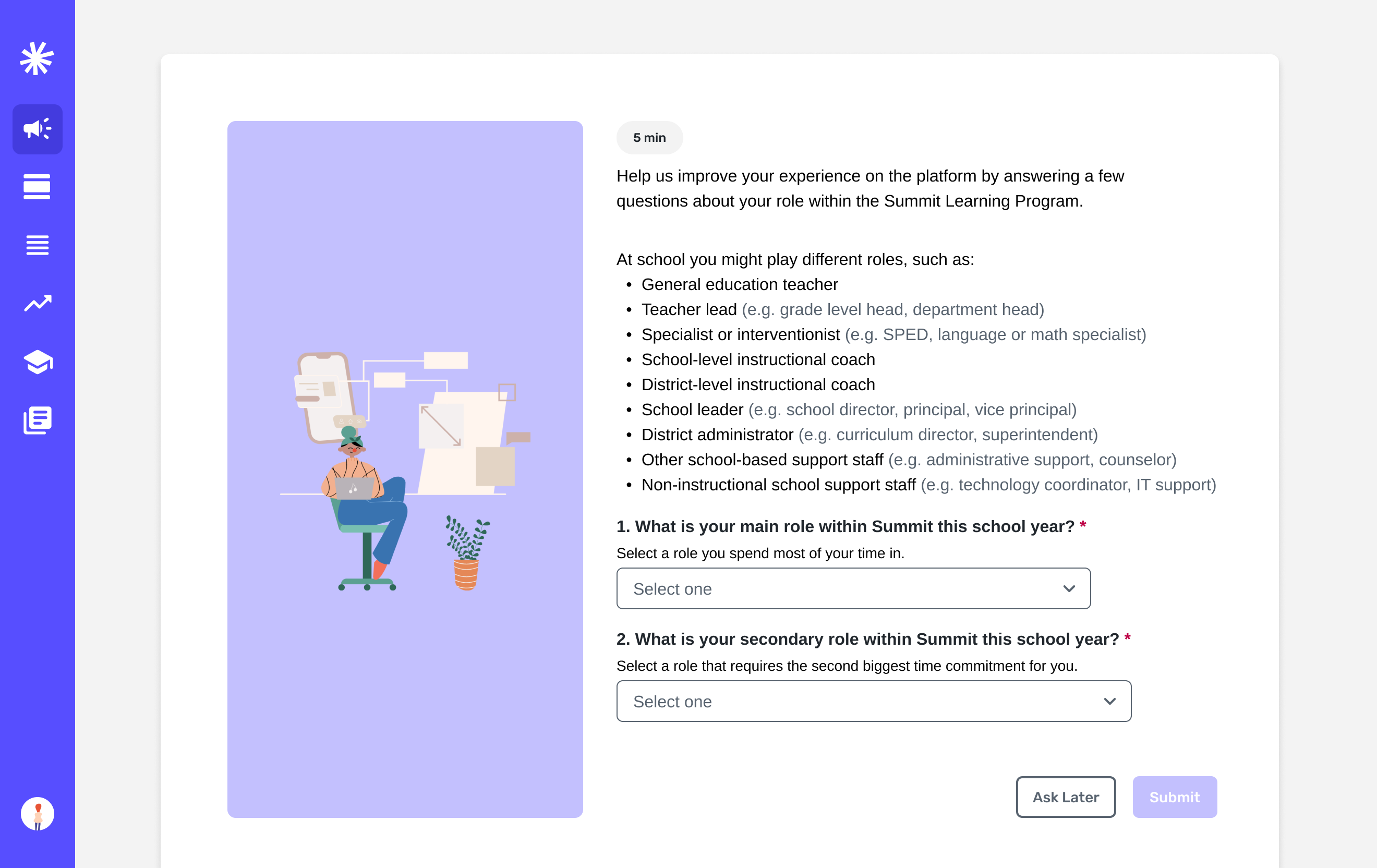The Chan Zuckerberg Initiative is committed to leveraging our core principles of collaboration, open science and diversity, equity and inclusion to realize a better future for everyone. We build tools with dedicated technology teams and fund technology development to accelerate progress in education and science. From internships to software development, product optimization to research analysis, CZI’s “Tech Talks” series features members of our technology teams working to develop tools that drive innovation and create impact.
In this edition, we meet with Baolinh Nguyen, a former CZI intern who transitioned into a full-time software engineer on the CZI Education team shortly after graduating from the University of California, Los Angeles. As an undergrad studying computer science, Baolinh first interned at a large tech company. There, she learned a lot but recognized that she hoped to build a career that would allow her to make a positive contribution to society.
During her junior year, a recruiter from CZI reached out about a summer internship. That summer, Baolinh was given the opportunity to work on product enhancements for the tech platform that supports the Summit Learning program. We partner with Gradient Learning, a nonprofit organization led by educators, to create learning experiences and tools like those found in Summit Learning to help teachers differentiate learning experiences equitably and foster strong connections with their students.
Having the opportunity to work on a high-impact feature for the Summit Learning platform that made it to production solidified Baolinh’s decision to return to CZI as a full-time engineer. Baolinh is proud to have started her career at CZI, learning from kind and passionate colleagues while also building technology that makes a positive impact.
“I see my work on Summit Learning as an opportunity to empower teachers and students to learn, grow, and succeed.”
Tell us about your CZI internship experience and what technology you had the opportunity to work on?
Over the course of my three-month internship, I worked on the School Dashboard. The project included building out how school leaders review student outcomes at the school over time. Previously, school leaders needed to take screenshots or create spreadsheets to understand trends, but this project put all the information in one place with clear visuals.
The project offered me the opportunity to work with a variety of different technologies, including using Ruby on Rails to build out the endpoints and using React for the frontend. I also worked closely with other cross-functional partners in our Education Technology program, such as Product and Design. The internship experience felt like it very closely mirrored how full-time engineers build products, including working across multiple functions and through the technology stack.
All of my CZI colleagues were extremely helpful and welcoming. My manager helped with my technical development, and also offered guidance and support as I began my career in tech.
In your full-time role at CZI, what technology are you currently working on?
As a software engineer on the Summit Learning platform, I focus on onboarding, training, and building tools and scaffolds for educators to join the platform seamlessly. I’m currently working on a User Role Definition survey to ask specific details during the onboarding process about the educator’s primary and secondary roles in a school, as well as what grades and subjects they serve.
What problem are you looking to solve?
The Summit Learning program serves many types of educators, such as support specialists, school leaders, district leaders, classroom teachers and many others. All of them use the tech platform, but each group has different needs. The User Role Definition survey is a quick, lightweight way for educators to self-identify their roles so we can create tailored experiences for their needs.
Why does this problem resonate with you?
By having a better understanding of who our users are, we’re able to build experiences as a team that can be more personalized and effective.
How have you been involved in advancing technology at CZI?
I first joined CZI as an engineer on the School & District Tools team, where I worked on building out dashboards for teachers and school leaders to review student outcomes, empowering them to make data-driven decisions on how to deliver differentiated instruction to students. When I joined the Onboarding & Training team to work on the User Role Definition survey, we weren’t completely sure how often we would be changing the questions. We had to balance building something quickly and flexible enough to modify if needed. We came up with two database models that would capture the information in a way that would make it easy to modify or add questions in the future.

Baolinh’s recent work on the Summit Learning platform includes building the current User Role Definition survey into the onboarding process to help educators self-identify their role in order to receive a more tailored experience in the platform.
Can you tell me a little bit about the technologies used to build the User Definition survey on Summit Learning platform?
We built the frontend using React and the backend using Ruby on Rails. We also have to process the responses by creating a data pipeline using Airflow.
How can this technology make a difference one year from now, 10 years from now, how about 50-100 years from now?
The survey provides insights into our user base and opens the door for a lot of different possibilities. Perhaps there’s a future development of the platform where teachers have personalized home pages, or the experience looks drastically different and more streamlined for school leaders versus for classroom teachers. It’s exciting to think about how something like this can open the door to more impactful features and interesting technical challenges.
I see my work on Summit Learning as an opportunity to empower teachers and students to learn, grow, and succeed. The unique lens that Summit Learning takes in its whole child approach to education is something that I think will benefit students in the long run — both in school and in life.
The Chan Zuckerberg Initiative is a new kind of philanthropic organization focused on engineering change at scale. Interested in joining one of our full-stack technology teams to build software and support our strategic partners that are developing tools to accelerate progress in science and education? Explore CZI career opportunities now.

